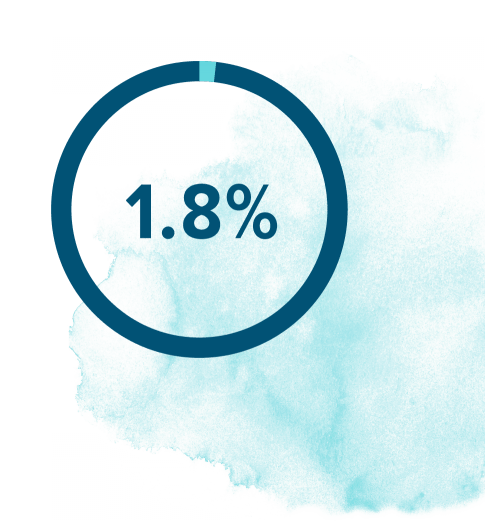Síntomas característicos
Los trastornos bipolares se caracterizan por cambios cíclicos del estado de ánimo. La persona afectada alterna entre subidas graves (episodios maníacos o hipomaníacos) y bajadas graves (episodios depresivos graves), a menudo con periodos intermedios de estado de ánimo normal. Los cambios de humor pueden ser rápidos, pero lo más frecuente es que se produzcan gradualmente.

EPISODIOS MANÍQUICOS
Un episodio maníaco es un período definido de aumento de energía y estado de ánimo anormalmente eufórico, irritable o eufórico que está presente durante la mayor parte del día, casi todos los días, durante al menos una semana. Durante el episodio, también deben estar presentes tres o más de los siguientes síntomas: autoestima más alta de lo habitual, reducción significativa de la necesidad de dormir, aumento de la locuacidad, pensamientos acelerados, distracción, aumento del comportamiento orientado a objetivos, agitación psicomotriz y participación excesiva en actividades placenteras de riesgo o autodestructivas. Si no se trata, la manía puede agravarse hasta convertirse en un estado psicótico.
EPISODIOS HIPOMANÍACOS
Un episodio hipomaníaco es menos intenso y de menor duración que un episodio maníaco completo. La diferencia más importante entre la manía y la hipomanía es que esta última no es lo bastante grave como para causar un deterioro acusado del funcionamiento diario o requerir hospitalización, y no presenta rasgos psicóticos.
EPISODIOS DEPRESIVOS MAYORES
Un episodio depresivo mayor se caracteriza por un estado de ánimo depresivo persistente, pérdida de interés o de placer en las actividades cotidianas durante al menos un periodo de dos semanas. También deben estar presentes cuatro o más de los siguientes síntomas: cambio significativo de peso o de apetito, dormir demasiado o no poder dormir en absoluto, agitación o retraso psicomotor, fatiga o pérdida de energía, sentimientos de inutilidad o culpa excesiva, incapacidad para concentrarse o indecisión, y pensamientos suicidas recurrentes.
Tipos de trastorno bipolar
TRASTORNO BIPOLAR I
El Trastorno Bipolar I se caracteriza por un episodio maníaco lo suficientemente grave como para causar un marcado deterioro de las funciones cotidianas o conduce a la hospitalización para evitar daños a sí mismo o a otros. También pueden producirse episodios depresivos graves.
TRASTORNO BIPOLAR II
El trastorno bipolar II se caracteriza por un patrón de episodios hipomaníacos y depresivos mayores. El episodio hipomaníaco se asocia a un claro cambio en el funcionamiento diario que no es característico del individuo.
TRASTORNO CICLOTÍMICO (CICLOTIMIA)
El trastorno ciclotímico (ciclotimia) es una forma más leve del trastorno bipolar. El trastorno ciclotímico se caracteriza por al menos 2 años de síntomas hipomaníacos y depresivos periódicos.
Prevalencia y edad de inicio
La prevalencia a lo largo de la vida de los trastornos bipolares en Estados Unidos se estima en 1,8% para el trastorno bipolar I y el trastorno bipolar II, y en 0,4%-1% para el trastorno ciclotímico. El trastorno bipolar I y la ciclotimia afectan por igual a hombres y mujeres, mientras que el trastorno bipolar II es más frecuente en las mujeres. La edad de aparición del primer episodio maníaco, hipomaníaco o depresivo mayor suele ser al final de la adolescencia o principios de la edad adulta, pero puede ocurrir a cualquier edad. En los hombres, el primer episodio suele ser maníaco o hipomaníaco, mientras que en las mujeres suele ser depresivo. Algunas personas experimentan ciclos rápidos entre estados maníacos y depresivos, con cuatro o más episodios de depresión mayor, manía o hipomanía en un año. Los ciclos rápidos son más frecuentes en mujeres que en hombres.

Tratamiento y apoyo
LITIO
El carbonato de litio es una sal y no tiene un receptor específico al que se una en el cerebro. Más bien, tras su administración, el litio se distribuye ampliamente por todo el sistema nervioso central, donde es transportado a las células cerebrales (neuronas) a través de los canales de sodio de las membranas celulares. El litio parece tener una acción neuroprotectora al restablecer el equilibrio químico (homeostasis) en las neuronas y disminuir su susceptibilidad al daño por estímulos tanto internos como externos. Este medicamento, aunque muy eficaz, tiene graves efectos secundarios, debido al pequeño intervalo entre una dosis eficaz y una dosis tóxica.
ANTICONVULSIVOS
También se ha descubierto que los medicamentos desarrollados originalmente para tratar los trastornos convulsivos tienen efectos estabilizadores del estado de ánimo y parecen ejercerlos a través de una acción neuroprotectora similar a la del litio. Los medicamentos anticonvulsivantes se utilizan con mayor frecuencia en combinación con el litio, los antidepresivos o los antipsicóticos atípicos en el tratamiento de los trastornos del espectro bipolar.

ANTIPSICÓTICOS ATÍPICOS
Los antipsicóticos atípicos modifican el funcionamiento tanto de la dopamina como de la serotonina en el cerebro. Estos medicamentos han demostrado tener efectos estabilizadores del estado de ánimo y son especialmente útiles para tratar la manía aguda con o sin síntomas psicóticos.
PSICOTERAPIA
Los pacientes reciben ayuda de otra persona para comprender y resolver los problemas que pueden estar contribuyendo a su trastorno. Las sesiones de terapia se centran en una serie de cuestiones, como desaprender patrones de conducta que contribuyen al trastorno o son consecuencia de él, reparar relaciones personales deterioradas, cambiar estilos de pensamiento negativos o resolver sentimientos y emociones conflictivos.
- Desaprender los patrones de conducta que contribuyen a su trastorno o son consecuencia del mismo.
- Reparar las relaciones personales deterioradas
- Cambiar los estilos de pensamiento negativos
- Resolver sentimientos y emociones conflictivas
Una perspectiva espiritual
Los trastornos bipolares son destructivos. Destruyen la mente del afligido, y también destruyen sus relaciones y su familia. Ver sufrir a un ser querido con trastorno bipolar hace difícil creer en Dios, y mucho más confiar en Él.
Como seres finitos, estamos limitados en nuestra capacidad de captar los significados y propósitos más amplios de las pruebas y el sufrimiento en nuestras vidas. Sin embargo, no nos apoyamos en nuestro propio entendimiento, sino que descansamos en el entendimiento de Dios y sabemos que Él tiene todo el control. Sabemos que Dios es soberano y bueno porque creó y sostiene todas las cosas (Deuteronomio 4:39; Daniel 4:34-35; Colosenses 1:16-17). Sin Él no hay nada, y nada ocurre al margen de su voluntad divina. Reconocer la soberanía y la bondad de Dios nos ayuda a atravesar los momentos difíciles, mientras clamamos con el salmista: "Pero en cuanto a mí, confío en ti, Señor, digo: 'Tú eres mi Dios'. Mis tiempos están en tu mano" (Salmo 31:14-15). Puede que nunca entendamos por qué sufre nuestro ser querido, pero podemos estar seguros de que Dios tiene el control y está dispuesto a proporcionar gracia sustentadora a todos los que le buscan (2 Corintios 12:9).

Más información sobre otros trastornos de salud mental.
